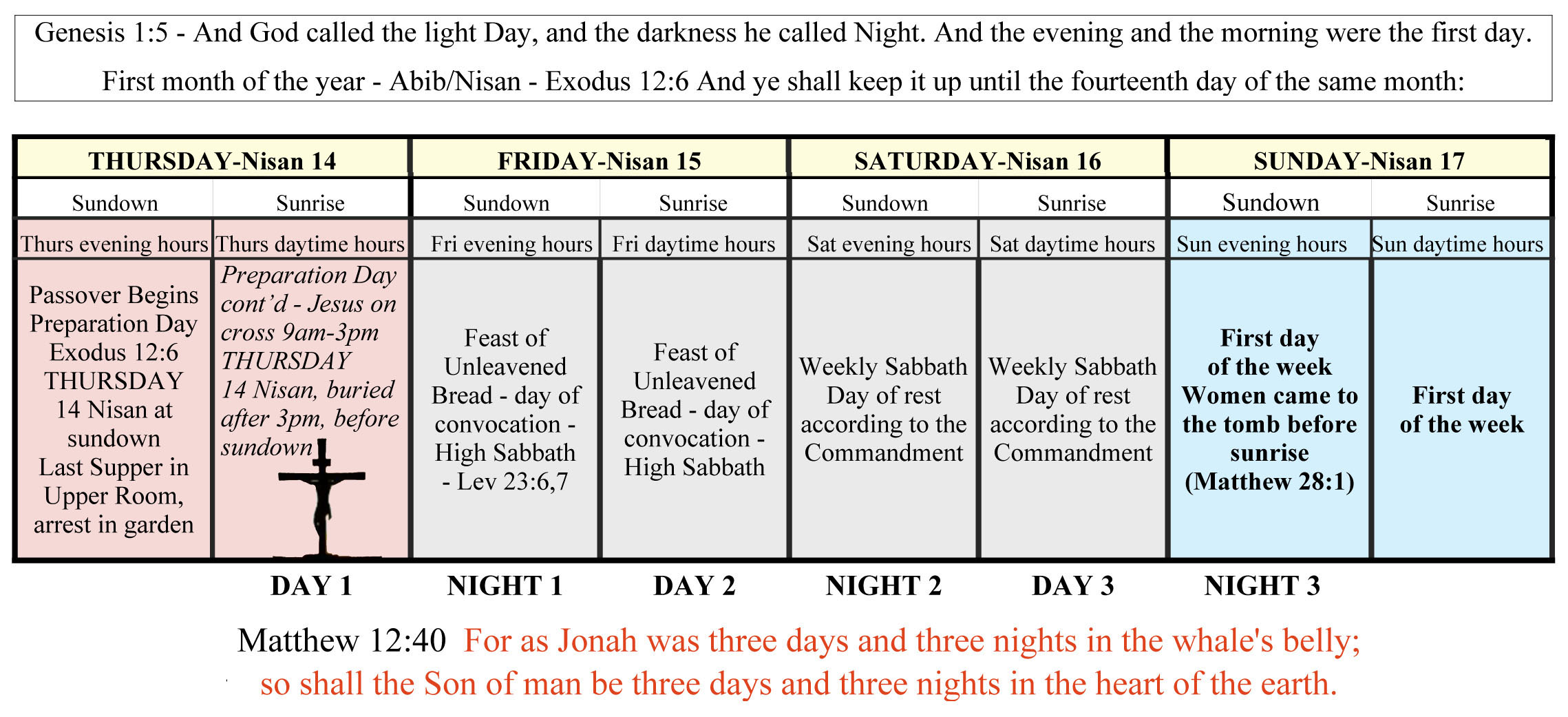Those where athens and they were trying to learn and understand Paul's God and what he was preaching at that time. Big different to what this thread is about. This is a world wide believe that Jesus died Good Friday and rose Easter Sunday Morning, taught through out world, but the Bible says different. Paul say in 2 Corinthians 11:4 For if he that cometh preacheth another Jesus, whom we have not preached, or if ye receive another spirit, which ye have not received, or another gospel, which ye have not accepted, ye might well bear with him. And that's what you are doing bearing with it. Because Jesus says in (Matthew 12:38) Then certain of the scribes and of the Pharisees answered, saying, Master, we would see a sign from thee. 39 But he answered and said unto them, An evil and adulterous generation seeketh after a sign; and there shall no sign be given to it, but the sign of the prophet Jonas: 40 For as Jonas was three days and three nights in the whale's belly; so shall the Son of man be three days and three nights in the heart of the earth. Can you get three days and three night from Good Friday to Easter Sunday Morning? So not only you can't get it with math, but a pagan day get slap on top of it. But the truth don't matter to certain people unless the lied is on them!
There
are 3 nights and 3 days between Good Friday and Holy Pascha on Sunday, actually, because in the Bible, if a thing occurs during any part of one 24 hour day it is accounted for the whole day, including the Eve before. So, a Friday crucifixion encapsulates Thursday evening and a Sunday resurrection encapsulates Saturday evening and Sunday. Thus, His soul was in
hell (the heart of the Earth) for three nights and three days, just as He said. That is what the ancient Christian elders knew and where contemporary know-it-alls err.
To better illustrate this logic, I present the following Biblical example:
(1) To us, three days and three nights generally means 72 hours,
but we must understand the Bible historically and culturally. For the Jewish mind, this could mean any part of the first day, all of the second day, and any part of the third day. This is obvious by comparing
Esther 4:16 and 5:1. Esther mentioned fasting for three days and nights and said that she would then go into the king, which she did, but 5:1 tells us clearly that it was
on the third day that she went into the king, not after three days or on the fourth. This simply illustrates the way the Jews reckoned time.
(2) Further, the statement “after three days” could mean to the Jewish mind “on the third day” since any part of that day was considered the third day
Quite frankly, the holy and ancient elders of the Church simply knew Scripture far better and more completely that many of us postmodernists do, and this is because they didn't just read it in order to find fault with others. Rather, they truly
lived it in order to become closer with God. These are the men and women of holiness and faith that some, in arrogance, like to assume they are better than. We've nothing to gain from arrogance but eternal torments if we don't repent of it: the great "woe" of the prophet Isaiah to those who are "wise in their own conceits and prudent in their own sight". Orthodox Christians, full of the grace that God gives to those who seek to receive the gift of humility by the action of the Holy Spirit, celebrate Holy Friday, Holy Saturday, and Great and Holy Pascha, which is the Feast of all feasts. Their hearts overflow with the joy of salvation, also in the Holy Spirit, and then they teach transgressors God's way, and sinners then return to Him.
Before, in a post, I suggested to you that you should simply look the explanations up for yourself online, because there are ample articles on this very topic on the web. There was a reason I did this. You see, if you or I or anyone is truly and genuinely seeking God's righteousness, rather than to feed our own desire for self-righteousness, then we will be praying to God for the inner disposition that Christ in His beatitudes calls being "poor in spirit". I got the distinct sense that you came here not to learn, but to teach. Not very many of us ought to teach, as the Holy Apostle Paul warns.


